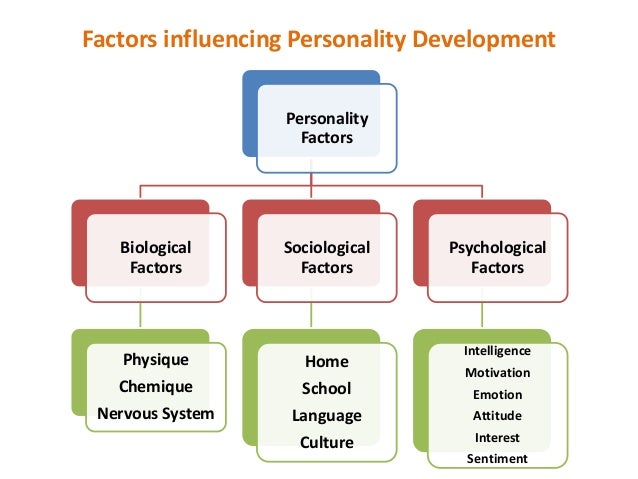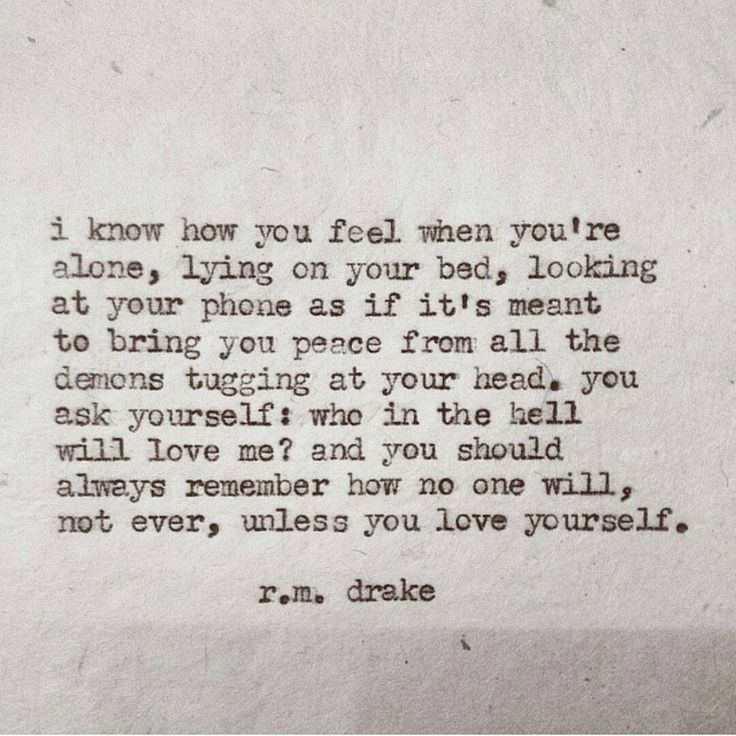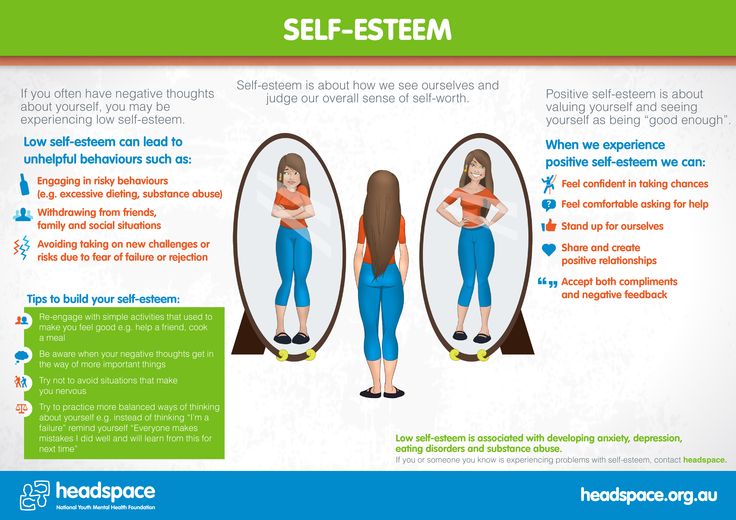Do commitment phobes come back
Will My Commitment Phobic Ex Come Back?
Not necessarily.
Women like that usually just go from one relationship to the next, until they find a guy who makes them want to commit.
For example: A woman who suffers from a fear of commitment usually finds herself in relationships with guys who are good guys, but are missing something that she really wants.
In many cases, the missing piece to the puzzle is that she will want a guy who doesn’t put up with her crap and give her too much power in the relationship.
She will be confused about the fact that she is very attracted to bad boys, but also knows that a relationship won’t work with a guy like that.
She wants a good guy, but not a guy who is too nice to her to the point where she can walk all over him and be the boss of the relationship, so to speak.
She wants a good guy with balls, not a extra nice guy who is willing to do whatever she wants just to get to spend time with her.
She wants a guy who creates a relationship dynamic that causes her to respect him and try to impress him, rather than him always trying to live up to her expectations and impress her.
If a guy doesn’t understand that, he will often make the mistake of trying harder and harder to please her, not knowing that by doing that, he is turning her off at a fundamental level.
She wants a good guy and she wants to be treated well, but she doesn’t want to be in the power position in the relationship.
She wants a relationship dynamic that causes her to want to be a good girl for her man, to please him and to continually impress him.
If a guy can’t offer her that, she will say that she is afraid of commitment, needs time apart and a number of other common excuses that she will have given to other guys in the past.
She will then place him in the friend zone and say that she loves him or cares about him, but doesn’t want to commit to a relationship.
The guy is then left feeling confused and wondering what would make her want to commit.
So, what will make her want to commit?
Here’s how to do it…
1. Understand what really caused her not to want to commit to you
For a woman to not want to commit to a guy, it usually means certain aspects of his thinking and behavior are causing her to doubt whether she wanted to stick with him for life (e.g. he was too nice, too insecure, gave her too much power in the relationship, was clingy).
So, rather than allow herself to become too emotionally involved with him and then have to break up with him at a later stage, she ends the relationship and opens herself back up to dating new guys for fun.
Naturally, this type of behavior makes her come across as being commitment phobic.
Yet, in most cases that’s not the truth at all.
If a woman hooks up with a confident, emotionally strong man who knows how to make her feel the way she wants to feel in a relationship with him (i.e. very feminine, like his girl, in love, feeling the need to impress him and maintain his interest), then her commitment phobia will naturally disappear.
The fact is, a woman doesn’t go through life dumping guys who are perfect for her because she fears commitment.
That would be crazy and most women aren’t crazy.
Women break up with guys who aren’t able to make them feel attracted in the ways that really matter to them (i.e. the guy she dumped didn’t make her feel like his girl and made her feel more dominant than him, or more like a friend).
So, if your ex broke up with you by saying something along the lines of, “I’m just too scared to make a serious commitment right now. Please give me some space to figure things out,” she was most likely just trying to let you down easily.
Most women are afraid that a man will react badly when broken up with, so they try to keep things light or blame themselves by saying things like, “It’s not you. It’s me. I’m messed up in the head. I had a bad childhood” or, “I have issues and need time to myself. I might go to a therapist. In the meantime, I can’t be in a relationship. I have to be on my own for a while.”
I have to be on my own for a while.”
She doesn’t want her boyfriend (or husband) to start desperately trying to convince her to give him another chance.
So, she lets him down easily and creates some space between them for a while, so she can move on without him.
Not all women do that though.
Some women break up with a guy and don’t tell him the reasons because she just doesn’t know how to explain it to him.
He’s a good guy, has been treating her well and she wants to break up with him, so she doesn’t really have many or any bad things to say about him.
She just knows that it doesn’t feel right to her.
So, in your situation, your ex either didn’t want to tell you her real reasons for breaking up with you because she feared you might get angry at her or become desperate and try to convince her to give you another chance, or she just didn’t know what to tell you.
To get her back, you need to discover her real, hidden reasons for breaking up with you and then make those changes, without asking her to help you or explain anything to do.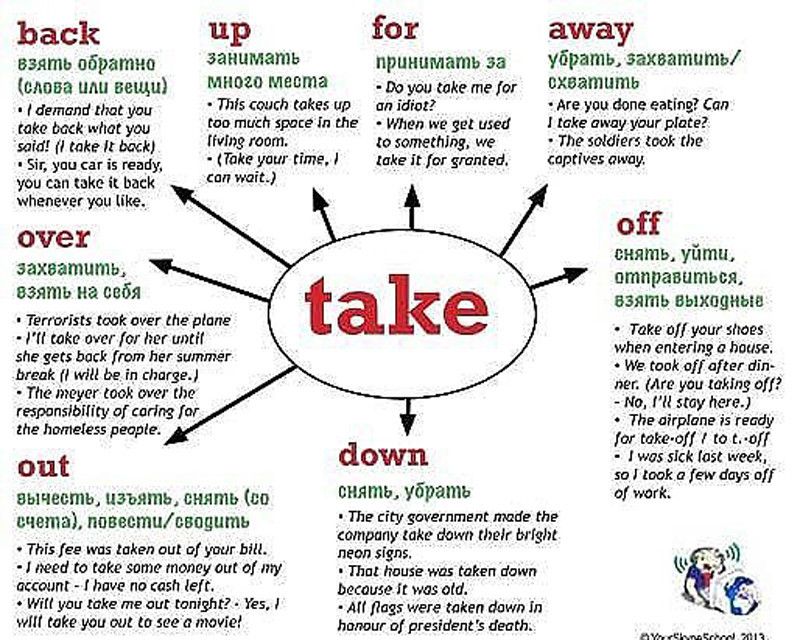
For example: Some of the real, hidden reasons why a woman might fear committing to a guy, include:
- He is too much of a worrier and takes everything so seriously that she can’t relax and feel happy around him.
- He fails her confidence tests by becoming insecure or clingy (e.g. when she throws a tantrum, acts uninterested in him, stops being affectionate or teases him about his appearance or behavior).
- He leads a boring lifestyle and expects her to just put up with it.
- He has emotional issues that remind her of an ex (e.g. insecure, emotionally sensitive, needy), or her abusive father, so she wants to get out before she gets too involved in the relationship.
- Her family and friends (who are an important part of her life) don’t like him.
- She feels insecure about her attractiveness as a woman and fears he will dump her if he finds another woman. So, she dumps him first to lessen the pain of losing him.
- He is a good guy, but just isn’t manly enough for her (i.
 e. he’s too nice to her, too giving and unable to be the dominant one in the relationship).
e. he’s too nice to her, too giving and unable to be the dominant one in the relationship). - He doesn’t seem like he really wants to commit to her for life and she doesn’t want to end up as a single mother or divorcee.
- He doesn’t learn from his mistakes and keeps failing at life.
- He gets nervous and unsure of himself around confident guys, so she doesn’t feel safe with him.
As you can see, there are many subtle reasons why a woman will really break up with a guy.
Understanding your ex’s real reasons for not wanting to commit gives you a clear idea of exactly what you need to change about yourself to reawaken her feelings of respect and attraction.
Then, when you interact with her again and she experiences the new and improved you, she won’t be able to stop herself from feeling respect and attraction for you in ways she can’t explain.
She will feel drawn to you and want to be with you for her own reasons (i.e. she doesn’t want to stop experiencing the love, sexual attraction and respect that she now feels for you).
She will want you back even though she may have previously said she didn’t want to commit to you.
Another tip to make your commitment phobic ex come back is to…
2. Prepare to attract her in the ways that she can’t find in other guys
If you want your ex to commit for real, you need to offer her something that no other guy can.
For example: Imagine that a woman broke up with a guy because she secretly believed that she wasn’t good enough for him.
She doubted her attractiveness as a woman and was worried that her guy would eventually dump her for a more attractive woman when he had the opportunity.
That insecurity may have been created in her when she was a child (e.g. if her father left her mother, remarried and had another child and loved that child more than her).
As she grew up, she may have convinced herself that her parents splitting up was her fault because she wasn’t loveable enough as a child.
Alternatively, her first love might have cheated on her with another woman.
As a result, all her future relationships are tainted by the fear that her guy will find a new woman more attractive and leave her behind.
So, to compensate for her fear, she tends to only go for guys who are totally devoted to her and madly in love with her.
Yet, deep down, she doesn’t want to be in a one-sided relationship where she is in the position of power.
She wants a guy that she is totally devoted to and madly in love with, who also loves her and is devoted to her.
If she can’t find that guy, she will accept guys who are madly in love with her and devoted to her, but she won’t ever feel the same way about them.
Then, when the guy tries to get her to commit (e.g. asks her to move in with him, asks her to marry him), she will say no and claim to be afraid of commitment.
Yet, the reality is that the feelings just aren’t mutual.
She likes the guy, but isn’t madly in love with him because he can’t attract her in the ways she really wants (e. g. he gives her too much power, he’s not confident enough).
g. he gives her too much power, he’s not confident enough).
In some cases though, a commitment phobic woman really does love the guy she is with, but she is worried about him leaving her one day.
So, if he slowly stops making her feel loved and appreciated like he did at the beginning of the relationship, her phobia will kick in and she will feel compelled to break up with him before he breaks up with her.
She will think something like, “I knew it! He’s just like every other guy I’ve dated in the past. He pretends that I’m the one he wants, but after a while he loses interest in me. I’m not good enough for him and he’s just too nice to tell me that. He doesn’t want to hurt my feelings. Yet, if I stick around much longer, he will hurt my feelings by dumping me and breaking my heart in the process. I can’t let that happen to me. I need to break up with him first.”
She then breaks up with him because she can’t handle the pain of losing him, or the pain of being the one who gets dumped.
To get her back, some guys will make the mistake of saying things like, “I promise you that I’m different. I’m not like other guys. I would never hurt you. You’re the most beautiful woman in the world to me and nothing can change that. I want us to be together forever.”
She might believe him the first time and give him another chance, but if she gets the sense that he’s only putting on an act to keep her a little longer, she will then go through with the break up.
If that happens, how can he get her back the second time?
He needs to show her by the way he talks to her, interacts with her and responds to what she says and does that he really does see her as the most beautiful woman in the world.
To him, she is more than enough for him.
She is so beautiful and so attractive that he wouldn’t ever want to leave her for another woman.
He can’t tell her that though because she won’t believe him.
He needs to show her.
At the same time, he needs to reawaken her feelings of respect, sexual attraction and love for him and then maintain and grow those feeling over time.
When she can see he is continuing to be loving, attentive, affectionate and loyal to her no matter how many weeks, months or years they’ve been together, she won’t want to leave him.
Suddenly, her commitment phobia will fade away and be replaced with total dedication and commitment to him and their future together.
The next tip to make your commitment phobic ex come back is to…
3. Interact with her on a phone call or in person and re-attract her
One of the biggest mistakes that guys make when dumped by a commitment phobic girlfriend, is to give her too much space (e.g. 30 to 60 days after a break up).
As you will discover from the video above, you don’t need to wait 1-2 months before you attempt to get her back.
If you do, she will most likely move on by beginning to date and have sex with new guys for fun.
Unfortunately, most guys don’t realize that until it’s too late.
For example: A guy might think something like, “I don’t want to scare her away. She’s already running from me, so the best approach is probably to leave her alone for a while. That way, she may start to miss me and realize that we are meant to be together.”
Yet, that rarely (if ever) happens with commitment phobes.
In most cases, the woman is just going to use the time apart to run to the next relationship that feels safe, or to date and have sex with new guys for fun like she has in the past.
Then, if she meets a guy and things start to get serious, she will dump him and move to the next guy if he isn’t able to attract her in the ways that she really wants deep down.
As a result, the cycle of getting into relationships and breaking up continues for her.
In her mind, she is doing the right thing and is simply following her heart, even though to her ex’s, she seems a little bit crazy.
After all, she will have dumped good guy after good guy after good guy.
She will have then hooked up with a bad boy or two for sex and chased him for a while and eventually gotten rejected.
It’s an ongoing cycle that won’t end until she meets a good guy with balls.
So, unless that is you, don’t think she is going to come running back to you simply because you cut off contact and ignore her for 1-2 months.
Commitment phobic women rarely go back to the same guy twice, unless of course, he does something to make the reconciliation happen.
In other words, he contacts her, re-attracts her, hooks up with her and makes her want to be in a relationship with the new and improved him.
She then wants to give him another chance for her own reasons, rather than being turned off by yet another ex who is begging and pleading with her for another chance.
Another tip to make your commitment phobic ex come back is to make sure that you…
4. Don’t try to get a relationship right away
When a woman is commitment phobic, she will continue being that way until you create a relationship dynamic that puts her in the one down position.
If she is in the one up position (i.e. the more valuable, prized person), then she will continue on playing her old games of being Miss Unavailable, Miss Unsure About Everything and Miss Nothing You Do is Good Enough.
So, don’t play into her games because you really can’t win that way.
What you need to do is re-attract her and make her really want to be with you again, but not push for a relationship or a commitment.
Let her be the one who is hoping that you and her get back together and then commit to each other.
This leads me onto the next point….
5. Be the challenge that she is looking for in a man
Commitment phobic women want a guy who is a challenge.
It’s not about treating her badly, being a jerk, a bad boy or anything like that.
Instead, it’s about being the sort of man that she feels the need to impress and maintain the interest of.
That’s what excites a commitment phobe and keeps her hooked for life.
So, with that said, one of the quickest ways to scare off a commitment phobic ex is to give her the impression that you are waiting by your phone for her to call and are willing to text, talk or see her at any time of day or night.
You are essentially hoping to get a bit of her time, because it makes you feel so good to be around her.
No, no, no.
She is bored by guys like that.
She wants to be the one who is hoping to get some of your time.
Making her feel that way isn’t about being completely unavailable, not answering her calls or being rude.
Instead, it’s about making her feel so attracted to the new and improved you, while also not giving her the impression that you’re hoping it will make her want you back.
You need to give her the impression that you are happy with or without her.
Don’t tell her that though!
Give her the impression based on how you think, feel, behave, act and respond to her.
Think about a time when you were interacting with a girl who really liked you, but you didn’t feel the same way about in return.
How did you behave with her?
That’s how you need to behave with your ex.
Where Guys Go Wrong When Trying to Get a Commitment Phobic Ex Back
By now you’ve probably realized that getting your ex back is not as difficult as you may originally have thought.
It’s essentially all about re-attracting her and making her really want you again.
That’s something that pretty much any guy can do with his ex girlfriend or ex wife.
You just need to approach it correctly.
With that in mind, here are two common mistakes that you should avoid making if you don’t want to lose her:
1. Assuming that not contacting a woman will make her want to come back
If your ex is commitment phobic woman, it’s understandable that you might be thinking, “If I try to get her back, she will pull away from me even more. So, maybe the best option is to wait until she starts missing me and then wants me back herself, right? In a way this will also prove to her that I’m a loyal, reliable guy and that she can depend on me to be there for her no matter what. She may then want to commit to me because of that, right?”
No.
Not contacting a woman to get her back only works on a very small percentage of women.
The cold, hard truth is that most women just move on if their ex guy doesn’t contact them and re-attract them.
In most cases, all it takes is for the woman to meet a new guy that she finds more interesting and attractive and she stops looking back.
She moves on, enjoys herself and doesn’t really care about her ex anymore.
Don’t let that happen to you.
If you want to get your ex back, get in touch with her, re-attract her, hook up with her and make her really want to have a new relationship with you.
That’s what works.
The next mistake to avoid making is…
2. Not understanding that the real issue is the fact that she hasn’t been getting the attraction experience she wants from you
A fear of commitment might be the excuse she’s giving you, but it isn’t the real issue.
I guarantee you that she will commit when a man understands what she really wants and gives her that experience (e.g. he is more manly in his behavior, makes her feel more girly, makes her respect him and look up to him, doesn’t put up with her BS).
Don’t let another guy give her that experience when you can do it.
Level up as a man, give her an upgraded attraction experience and enjoy the great times ahead with her.
Want Her Back FAST?
Watch a secret video by Dan Bacon where he reveals the fastest way to get your ex back.
It's only available here. Enter your email below to watch the video for FREE right now.
Simply enter your email address and click the orange button to gain free, instant access!
How To Get Your Commitment Phobic Ex Back
Today we’re going to discuss the 5 keys to getting a commitment-phobic ex back, or more specifically, to getting a commitment-phobic ex actually to commit to you once and for all.
- Understand Why Your Ex Is A Commitment Phobe
- Outgrow Your Ex During A No Contact Rule
- Embrace The Interdependence Theory (Satisfaction, Alternatives, Investment)
- Learn About The Secure Attachment Gravity
- Employ Tactical Empathy In Conversations With Them
Let’s take a few moments and go through each one of these steps so you have a complete understanding of what we mean by them.
Key #1: Understand Why Your Ex Is a Commitment-Phobe
There are a lot of different reasons people develop commitment-phobia.
Fear of losing their independence is one of the most common reasons we see in many people with avoidant attachment styles. Their biggest fear is no longer having freedom of self or the independence that comes with it, especially when the relationship gets deeper, more serious, and more emotional.
Then they may fear being used, which is another common thread in relationships these days.
It’s a nightmare for men, where they fear women dating them, getting pregnant on purpose, and roping them in for child support for over 18 years with limited access to the child. This will sound controversial, but this is something men actually consider when it comes to commitment-phobes.
Usually, they’ll project poor experiences they have had in the past or poor experiences with their own parents onto all their future relationships and perceptions of women.
The fear comes into play specially when they have become intimate with their ex and then they start worrying about being roped in and ‘losing their lives forever’.
Another reason behind most commitment-phobes is fear of rejection.
They have that one lost love that has had such a long-lasting, usually negative impact on their lives, making them project it onto every other person who enters their life in the romantic capacity. Rather than facing rejection, they would rather be the rejector.
Then we have people with idealized expectations.
This one is simpler to explain, as this describes people who become obsessed with the honeymoon period. They get used to things feeling good all the time, so they start naturally believing that things should be this way every single moment of every single day.
What happens here is that your ex was so engrossed by the idea of the honeymoon period that when the honeymoon period starts to diminish, they start to think that something is going wrong. Moreover, they think they are not in love anymore as their idealized expectations do not match reality anymore.
Moreover, they think they are not in love anymore as their idealized expectations do not match reality anymore.
They are basing everything on a phase in the honeymoon period when we all know that the real part of relationships starts after that.
Lastly, we have other relationships traumatic experiences.
This is where they have had a bad experience in a past relationship, and now they grade every new person they date on this scale. They think you will treat them just like their ex treated them, and this is where commitment phobia comes into play.
They’d rather stay away than let themselves be heartbroken again.
The challenge here is to understand which of these categories your ex falls into, and once you get the hang of that, you can move into actionable steps to overcome this.
Key # 2: Outgrow Your Ex During A No Contact Rule
This may seem like we are getting a little off-topic, but you will understand this step in a bit. If this isn’t your first rodeo, you’ve probably heard of the no contact rule, which is without a doubt our most talked about strategy.
However, we have noticed that everyone who talks about the no contact rule completely misses the point of the no contact rule.
Yes, the no contact rule or simply ignoring your ex for a certain period of time will make you look like you’re ‘playing hard to get’ and stimulate emotions within your ex where they try to reobtain the freedom of talking to you again. Psychologically too, it will make your ex miss you more.
However, the no contact rule is not all about making an ex miss you. More than anything, it should be about you getting into a state emotionally where you have outgrown your ex.
If you can get to this space emotionally, you will notice how your ex treats you differently when you eventually start talking to them again.
The big issue is that most people don’t outgrow their ex at all, especially if their ex is a commitment-phobe, since they want them to commit so badly. Yet, the irony is that the best way to make them commit may very well be in the fact that you need to get over them first before you approach them.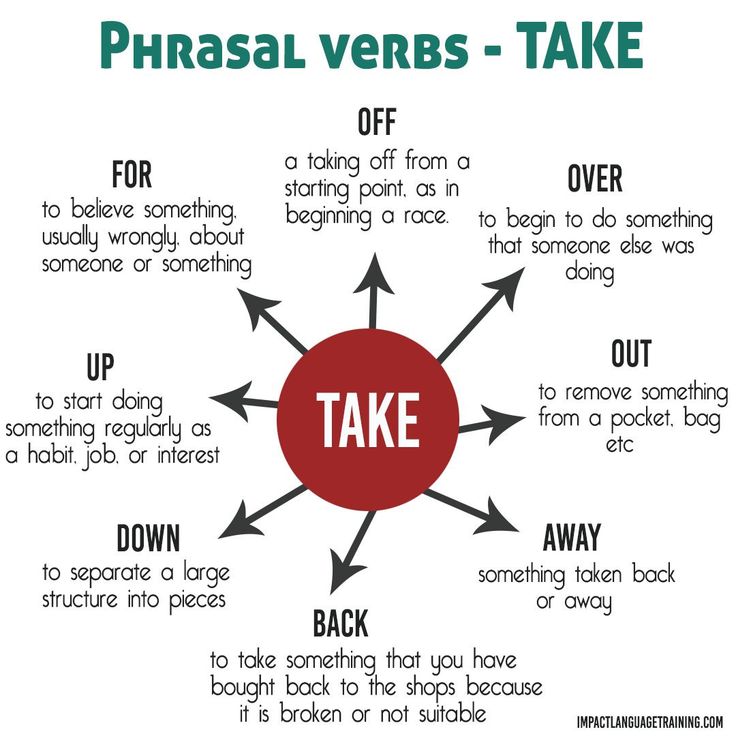
We will address this specifically when we discuss avoidant attachment styles, so put it on the back burner for now.
Key # 3: Embrace The Interdependence Theory
The interdependence theory helps us understand why human beings commit to one another.
This theory outlines that human beings commit to one another based on cost and benefit scenarios. As human beings, we are always trying to maximize the benefits of being with someone while minimizing costs.
Theoretically, if you can find someone with more benefits and less costs, you are likely to cut bait and run to this person.
The criteria where we grade these benefits and costs can be divided into 3 specific categories.
- Satisfaction: How satisfied we are in a relationship
- Alternatives: Is there a better alternative out there than ‘us’
- Investment: How much have we invested into this relationship (monetarily, emotionally)
Which out of these three categories matters the most?
Research indicates that even if you are extremely unsatisfied in a relationship and you start thinking you can find someone better, you are still likely to stay in the same relationship if you think you have invested a lot of time, money, and effort into the relationship.
Often, this is why people stay in marriages that they are very unhappy in because they feel they have invested so much and do not want to lose that time.
If you interview people like this and ask them why they’re still in a relationship with this person, and they say, ‘It’s because I don’t want it to be for nothing.’ We need to reverse analyze this because, ultimately, you have to focus on those 3 categories.
You want every interaction with your ex after the no contact rule to be satisfying, and if they’re satisfying, it leads to the alternative aspect, meaning if your conversations with your ex are extremely satisfying, then they will be at ease.
They will begin to think that there is no better alternative than you. However, the main thing you need to achieve is to gain a monopoly of your ex’s time.
If you succeed in doing this, i.e., your ex is now spending more time texting you and talking to you, all of a sudden, your value has risen more than anyone else, and the other things just take care of themselves. The secret to the interdependence theory is to create as much investment from your ex into you as possible.
The secret to the interdependence theory is to create as much investment from your ex into you as possible.
Key # 4: Learn About The ‘Secure Attachment Gravity’
We are very big on attachment styles when it comes to helping our clients understand what is going on with their exes. If you are not familiar with attachment styles, it is the relationship you had with your parents in your child and how it impacts how you deal with others in your own romantic lives.
Generally, there are 4 attachment styles.
- Secure Attachment: The holy grail, where people are healthy and normal in their relationships.
- Anxious Attachment: People incredibly anxious after a breakup. They are most likely to blow up your phone, show up at your work, embarrass you. Their entire lives revolve around this relationship with you, and any threat to that makes them go berserk.
- Avoidant Attachment: People with avoidant attachment styles often feel right at home with commitment-phobes because they value their independence more than anything you can ever imagine.
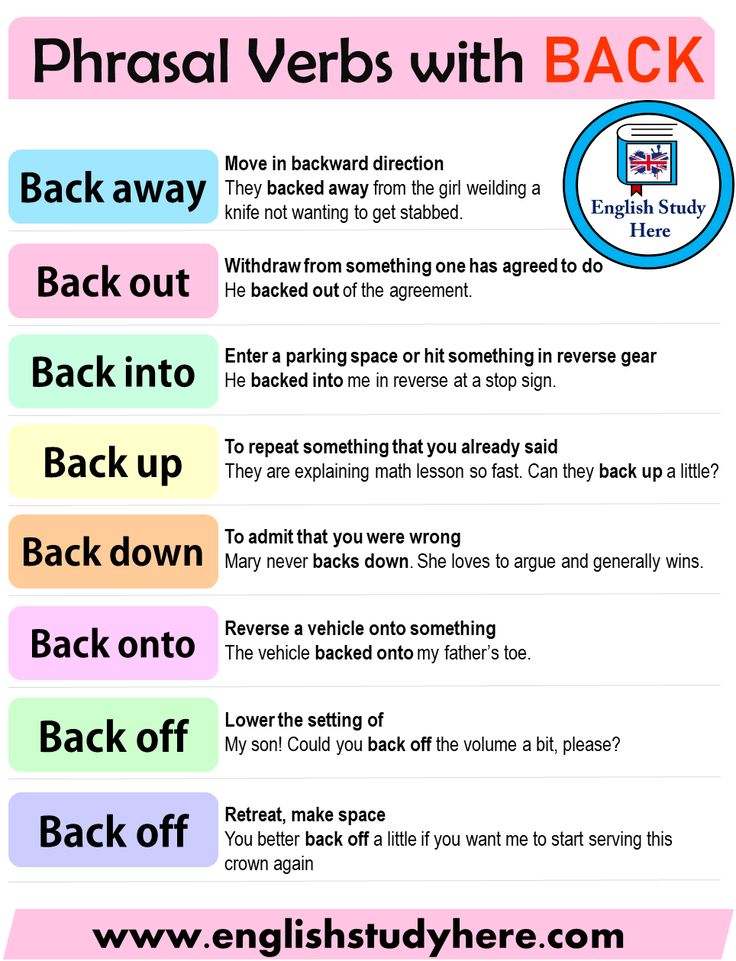 As a result, they tend to push people away when they feel that independence is being threatened.
As a result, they tend to push people away when they feel that independence is being threatened. - Fearful Attachment: The fearful attachment style combines the worst elements of an anxious person and an avoidant person. They usually have a pendulum shift between the two extremes. One minute their anxious, the next minute their avoidant, and the next minute anxious again. You are left wondering what is wrong with this person. The interesting thing about fearful attachment style is that only 7% of the entire human population has been diagnosed with fearful attachment styles. This means that it is highly unlikely that your commitment-phobic ex has a fearful attachment style. What’s more likely is that your commitment-phobic ex is avoidant.
We know that someone with an avoidant attachment style or someone who has a commitment phobia will not permit themselves to miss you until they feel you have completely moved on. If you understand this, you will probably connect the dots on why outgrowing your ex makes sense.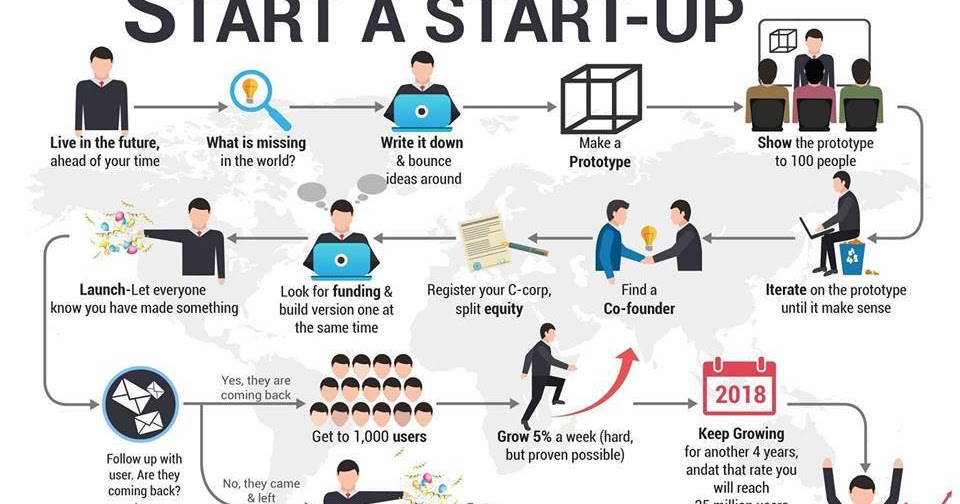
By outgrowing your ex, you are making your ex think that you do not want them back anymore so they can allow themselves to daydream about what life could have been like with you. This is when you want to start talking to them again.
How do you make someone with commitment phobia commit to you more and also ‘cure’ them?
This is where the secure attachment gravity comes into play. It is a concept that we have recently started to explore. The secure attachment style serves as the hero for all attachment styles, so when you pair up someone with a secure attachment style and an avoidant attachment style, with enough time, the avoidant attachment style will become susceptible to the secure attachment style’s tendencies.
It’s almost as if you are teaching them how to treat a human being in a relationship. They will slowly begin to mimic the secure attachment style tendencies. This does not happen overnight and can even take many years to happen, but it does exist.
The same theory can apply to fearful people and anxious people paired up with secure people. The smartest thing you can do is doubling down on understanding your own attachment style and shifting it towards a more secure attachment style.
The smartest thing you can do is doubling down on understanding your own attachment style and shifting it towards a more secure attachment style.
We’re going to save you some time. If you are looking at this article or spending time on our website, you most likely have an anxious attachment style because these people value their relationship with their ex higher than anyone else.
Our research can back this up as close to 90% of our clients have anxious attachment styles, whereas their exes have avoidant attachment styles. Since you have more anxious tendencies, it is best to shift them towards secure tendencies that will make your ex look at you as a whole new person. Your secure attachment will mean that eventually, your ex will begin to take up some of those secure tendencies themselves.
Key # 5: Employ ‘Tactical Empathy’ In Conversations With Them
People who have avoidant tendencies and/or are commitment-phones tend to think that the world does not understand them.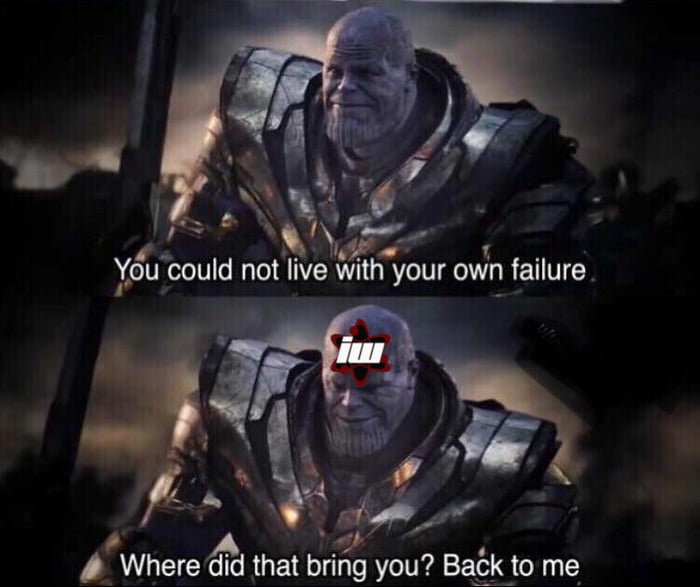
As a result of this, they do not even bother to explain why they are doing things. However, you can employ tactical empathy by repeating their own worldview to them.
This bridges the gap and makes that person stop and say, ‘you really do get me.’
Tactical empathy not only gives you brownie points but allows them to open up about how they really feel. The only way to get a commitment-phobe actually to commit to you is if they can talk to you, communicate, and feel safe.
The key is that if you can use tactical empathy, understand their worldview, and repeat it back to them, they will feel safer around you.
A good example is you know a commitment-phobe who is afraid of losing their independence and saying to them, ‘I know you feel like being with me is going to cause you not to be able to go out with your friends or have fun, but I can assure you it won’t’. This will make them stop and think about how you’re right, it’s true, and how they are afraid of it.
This will allow them to blossom more, and you will learn more about them. Now, it will not make them commit to you right away – none of the things in this article will make them commit to you right away – but they are steps in the right direction. A combination of these methods will do the trick and make your commit-phobic ex commit to you.
Conclusion
Getting a commitment-phobic person out of their shell is not an easy task at hand, but you can do it through the various methods we have covered. It is pivotal that you follow these steps and apply them carefully. The 5 major keys are:
- Understanding why and what type of commitment-phobe your ex is
- Outgrowing your ex in a no contact rule
- Embracing the interdependence theory (Satisfaction, Alternatives, and Investment)
- Learning about the ‘Secure Attachment Gravity’
- Employing ‘Tactical Empathy’
Through these steps, not only will you make your commitment-phobic ex commit to you, but you will also go through self-discovery and find out how you can push yourself towards a more secure attachment style.
Phobias: symptoms and causes
Phobia is a strong fear that cannot be controlled and rationally explained.
If ordinary fear can be explained logically and thus get rid of it, then phobias are irrational and often occur along with panic attacks. Fighting a phobia is very difficult, since the cause of its occurrence is often difficult to explain, but timely consultation with a psychotherapist can solve this problem and save a person from uncontrollable experiences and unpredictable actions.
The irrationality of a phobia lies in the fact that a person's fear of a certain object or phenomenon does not correspond to the actual danger. For example, a huge, aggressive dog is a threat, and the fear for health and life in this case is rational, but a miniature lapdog in a leash and in a muzzle, which evokes similar emotions, defies explanation. Fear of a dog can be overcome with logical arguments (the owner of the dog is nearby and assures you of its friendliness), but if no one and nothing can calm you down and panic sets in, then this is already a phobia.
The symptoms of any kind of phobia are similar and resemble those of a panic attack:
- strong heartbeat;
- breathing difficulties, choking;
- dry mouth;
- increased blood pressure;
- discomfort in the stomach and nausea;
- chest pain or pressure;
- shiver;
- dizziness;
- increased sweating;
- weakness in the legs;
- a feeling of unreality of what is happening or of oneself.
The main causes of phobias
Experts identify the following causes of inexplicable fear - biological, genetic, psychological, social.
Biological and hereditary factors
The lack of a certain acid in the body (gamma-aminobutyric acid), which has a sedative effect, leads to an increase in fear and anxiety, which in turn contributes to the risk of phobias. The reasons for the decrease in the amount of this acid can be brain injuries, long-term use of drugs and psychotropic drugs, stress and depression.
In addition, the cause of phobias may be a genetic factor. If one of the parents suffers from a phobic disorder, then the risk of developing a phobia in a child is very high. However, what exactly influenced this, hereditary predisposition or certain behavior of a relative, it is difficult to say.
Social causes
Most often, the emergence of phobias contributes to the influence of external factors, especially various events of a shocking nature that occurred in childhood. It is the psychological traumas of childhood: insect or animal bites, loss of loved ones or prolonged separation, negative experience of swimming or indoors, and the like that usually grow into unpredictable fears.
Psychological factors
Some phobic disorders and panic attacks are not traceable to any trauma or event, in which case the causes are often hidden in the subconscious. Incorrect explanation of any words or actions, an incorrect view of current and future events, infringement of characteristic features and other psychological problems can also affect the occurrence of phobias.
Certain fears appeared in the process of evolution, for example, the fear of open space has its roots in the distant past, when there was a danger of attack by wild animals in an unprotected place.
Social causes
The appearance of social phobias can be facilitated by excessively strict upbringing or criticism of parents, inadequate assessment by adults of the events taking place with the child, unsuccessful experience of communicating with peers or the opposite sex.
Thus, traumatic situations, affecting the fragile psyche or hereditary predisposition, as well as social and financial situation, contribute to the emergence and development of various phobias.
Types of phobias
Currently, experts distinguish about 400 types of irrational fear. The systematization of phobias is a rather difficult process, since here it is necessary to take into account the factors of their appearance and development, signs and methods of treatment. Let us dwell on the most popular way of distinguishing varieties of phobias - according to the plot of fear, i.e., according to the object that causes such strong emotions.
Let us dwell on the most popular way of distinguishing varieties of phobias - according to the plot of fear, i.e., according to the object that causes such strong emotions.
Fear of certain situations
This includes the strongest negative experiences from anticipation or being in a situation. Such phobias usually appear after experiencing intense fear in certain circumstances. This may be the fear of any type of transport (airplanes, ships, trains, etc.), closed or open spaces, as well as the fear of loneliness, etc.
Social phobias
Here are collected all the fears associated with the pathological horror of being in front of other people: fear of speaking in public, unfamiliar society, exams, large crowds, and so on.
Fear of people
Inexplicable horror can be caused by people of a certain profession, nationality, status, gender, sexual orientation, age, appearance, etc.
Fear of disease (nosophobia)
Any sane person avoids disease by maintaining a healthy lifestyle, taking prescribed vitamins and medications on time, but for some, concern for their well-being goes beyond reasonable limits and develops into an irrational pursuit of health. More and more people in our time are subject to the fear of cancer (carcinophobia).
Thanatophobia
- fear of death. Probably, we are all afraid of dying to some extent, but thanatophobes experience constant panic and anxiety, which provokes the occurrence of neurosis and prolonged depression in them.
Fear of states
Any person experiences various emotions and understands that these experiences are natural. Some are so afraid of being in a certain state (impoverished, bankrupt, getting rich) that they experience panic attacks. This also includes the fear of experiencing certain emotions, the fear of old age, failure, etc.
Fear of action
The anticipation or performance of some action entails an inexplicable fear. It can be a fear of dancing, singing, cooking, studying, performing, and more.
Fear of places
We often avoid certain places where we once experienced negative emotions (morgue, night cemetery). People who are prone to this group of phobias, from the mere thought of some place (elevator, roof, church, theater) can experience horror and dizziness.
Fear of substances
A person with this disorder experiences uncontrollable panic to the point of insanity at the mention or sight of some substance. The most common phobias of this type are methylophobia (fear of alcohol), pharmacophobia (fear of drugs), amatophobia (fear of dirt) and cibophobia (fear of food).
Fear of objects
Fear of specific objects often arises after negative situations with these objects that have taken place in life (fear of sharp objects, mirrors, weapons, etc.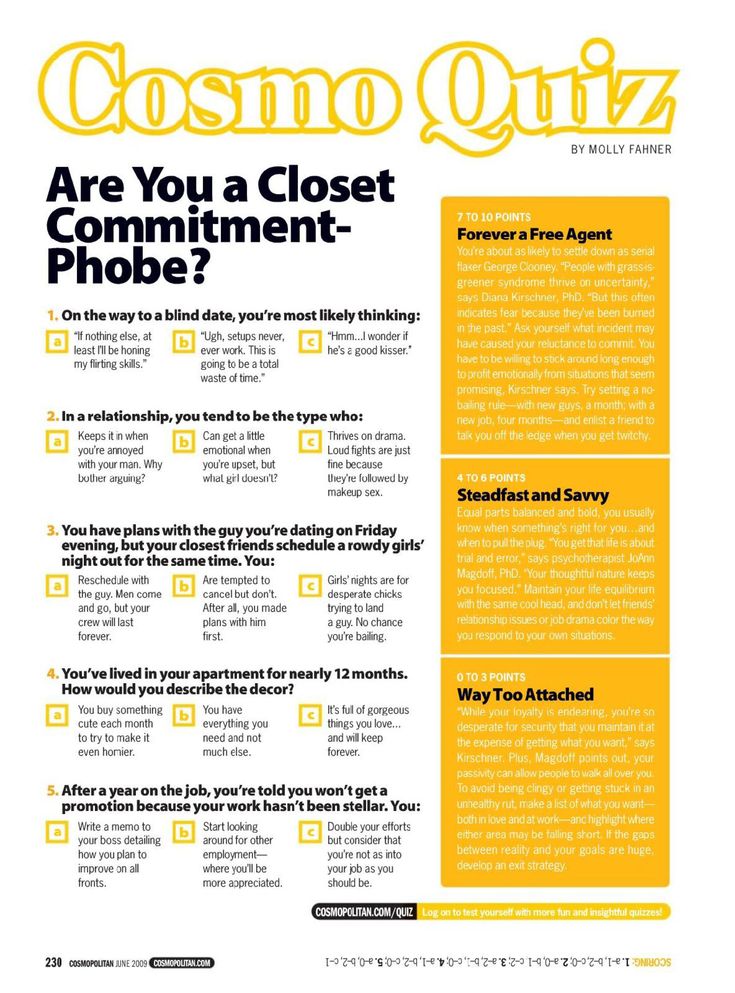 ). In addition, this type of phobia also includes fear of a certain color, size or shape of objects.
). In addition, this type of phobia also includes fear of a certain color, size or shape of objects.
Zoophobia
A fairly large group of horror in front of a certain type of animal. Any person has a fear of wild or aggressive representatives of the animal world, but we are unlikely to experience horror in the zoo or at the mere thought of a certain animal.
Fear of mysticism
Many go into the world of mysticism, not finding themselves in ordinary real life. Fear of committing sin, God's punishment, fear of magicians, sorcerers, holy places - only a small part of the fertile mystical soil for the emergence of phobias.
Fear of natural phenomena
Horror and helplessness experienced before the destructive phenomena of nature is considered the result of genetic memory. Tsunamis, earthquakes, hurricanes are really dangerous, and so far man has not learned to fully cope with them. However, there are a huge number of phobias associated with quite ordinary and harmless phenomena: wind, snow, fog, moon, sunlight, water, and so on.
This is far from a complete classification of phobic disorders, since a person can experience panic and fear in front of any objects or phenomena, not only existing in life, but even imaginary.
Experienced psychotherapists will help you cope with any kind of phobias, the main thing is not to be ashamed of your problem and seek professional help in time.
Shadows of Kuchma's politics cover Yanukovych
04/16/2012
Viktor Mevedchuk, the former head of the Administration of President Leonid Kuchma, is returning to Ukrainian politics. He has already given several interviews, in which he paid particular attention to constitutional reform, strengthening relations with Russia and protecting the interests of eastern Ukrainians. Politcom.Ru asked the experts what are his prospects in the context of the upcoming parliamentary elections, and what is his goal of returning to big politics?
Bogdan Yaremchuk, political scientist (Kyiv):
There is an official version of Viktor Medvedchuk, set out in his article “Ukrainian Choice”: “Ukrainian citizens need to understand and draw conclusions that our problems are not that we are once again they made a mistake by voting for this or that politician or political force, but that any government, realizing its lack of control, begins to feel impunity, remembering the interests of the people only on the eve of the next elections. I am sure that today we need to create a social movement that sets itself the goal of real influence and public control over the government elected by the people.”
I am sure that today we need to create a social movement that sets itself the goal of real influence and public control over the government elected by the people.”
Thus, the answer to your question is formulated as follows: “The goal of V. Medvedchuk's return to big politics is, from the point of view of his own propaganda, in an effort to ensure control over the actions of the authorities, and to establish himself as an effective controller.
Of course, such publications as "Ukrainian Choice" pursue ideological and PR goals and cannot be taken seriously as a reflection of the innermost plans of politicians. However, the news that V. Medvedchuk is returning as controller has made many members of the Ukrainian ruling class very nervous. Someone else, but they absolutely do not need controllers, and phobias about V. Medvedchuk as a “firm hand”, capable, according to existing suspicions, of “putting things in order”, among “certain circles” are traditionally strong.
Previously, these phobias were accused of authoritarian moods by V. Medvedchuk. So, in 2002, political scientist Bogdan Osadchuk said: “Despite the Soviet past, Medvedchuk is a man of modern times, he is a good lawyer, a strong and determined personality. His Ukraine will no longer be bureaucratic authoritarianism, it will be real authoritarianism, based, however, on good laws, but far from democratic standards. This is not the path that Ukraine needs.”
Medvedchuk. So, in 2002, political scientist Bogdan Osadchuk said: “Despite the Soviet past, Medvedchuk is a man of modern times, he is a good lawyer, a strong and determined personality. His Ukraine will no longer be bureaucratic authoritarianism, it will be real authoritarianism, based, however, on good laws, but far from democratic standards. This is not the path that Ukraine needs.”
Now the anxiety and fear find a different expression. This politician is no longer accused of autocratic sentiments, but of pro-Russian aspirations. So, for example, the Minister for Emergency Situations and the former head of the Yushenkov apparatus, Viktor Baloga, who is the unofficial leader of the Transcarpathian clan, made the following attack on V. Medvedchuk: “His desire to strengthen Ukraine in the sphere of Russian influence was even when Mrs. Tymoshenko worked as prime minister , and remains now. We can cooperate in the economic sphere with Russia. But where we integrate will be decided not by the authorities, but by the Ukrainian community.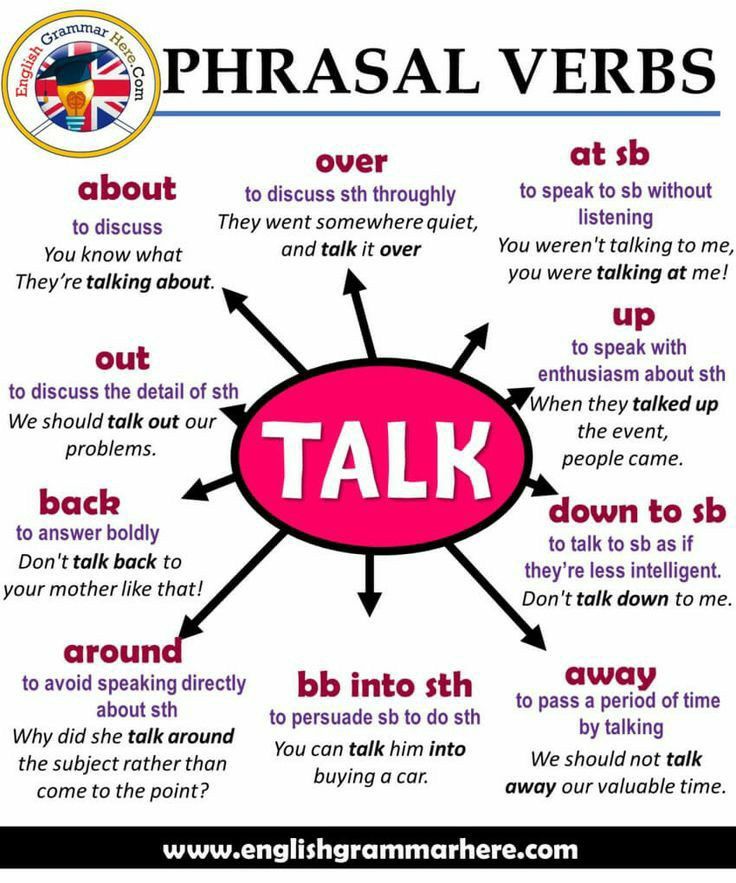 No need to artificially pull where it does not reach. Medvedchuk obviously has a task to strengthen the Russian vector.” Thus, the answer to your question is formulated as follows: "The goal of V. Medvedchuk's return to big politics, from the point of view of his opponents' propaganda, is to achieve Ukraine's accession to the EurAsEC."
No need to artificially pull where it does not reach. Medvedchuk obviously has a task to strengthen the Russian vector.” Thus, the answer to your question is formulated as follows: "The goal of V. Medvedchuk's return to big politics, from the point of view of his opponents' propaganda, is to achieve Ukraine's accession to the EurAsEC."
The peculiarity of the situation here is that V. Baloga entered politics in the late 90s as the head of the Transcarpathian organization of a political party headed by V. Medvedchuk, providing this organization with a significant share of votes in the elections. In addition, his reference to the opinion of the “Ukrainian community” seems more than surprising, which, unlike the authorities, will decide where Ukraine should integrate. One can be a supporter of European integration or inclusion in pro-Moscow integration structures, but in any case one cannot ignore the strong Russophile structures that exist in Ukrainian society. According to the latest public opinion poll conducted by the influential Kiev International Institute of Sociology (KIIS) in February this year, if a referendum were held, 55% are ready to vote for Ukraine's entry into an alliance with Russia and Belarus, and 27% are against (in the eastern regions "for" - 77% against - 11%, in the southern "for" - 72% "against" - 9%, in the central "for" - 48% "against" - 31%).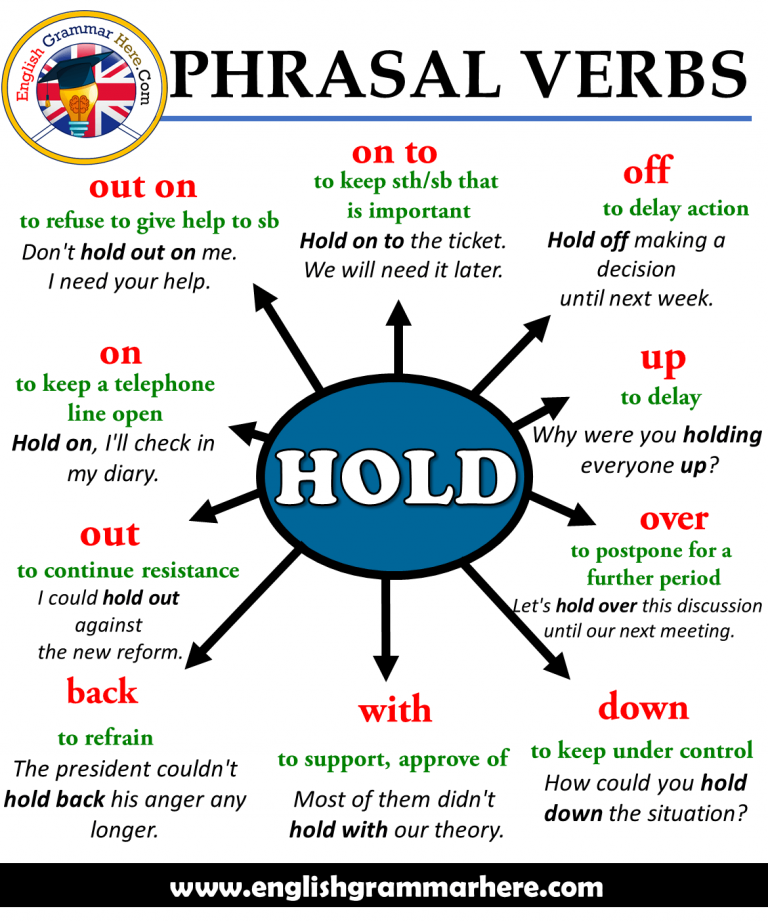
Of course, pro-European sentiments are also very strong in Ukrainian society at the same time. According to the same poll, 40% are ready to vote for EU accession, 33% are against - 26%). It is also obvious that Moscow is largely inferior in the struggle for influence on young people, for whom the EU guidelines are more than attractive. However, in general, covering up anti-Russian attitudes with references to a certain “Ukrainian community” seems to be something out of the ordinary and blatant.
However, if we ignore both pro-Russian and pro-European sentiments, then we can say that there is a demand for another attitude, which can be conditionally called "realistic", no matter how trivial this term may be. Its adherents are more than positive about the political, economic, legal, social and cultural standards of the EU, consider it necessary to adopt them in Ukraine and do not accept anti-European rhetoric. They understand that Ukraine, as a direct neighbor of the European Union, is doomed to a special relationship with Brussels and must take into account the existing balance of power in a world in which the geo-economic weight and prestige of the EU, despite the current crisis, remains exceptional. However, rapprochement with Brussels at the expense of relations with Moscow is unacceptable for them, and interaction with the Russian Federation and its integration projects is extremely important to promote Ukrainian products to the commodity markets. They perfectly see that the West is playing a double game with Ukraine, according to the principle “we, unlike Bulgaria and Romania, will not accept you into the EU, only you will not get closer to Russia.” They understand that over the years the world will have to look more and more to the East, which begins to determine the dynamics of development. They are characterized by respect for the interests of the Russian Federation with the understanding that they do not always, and above all in the energy sector, coincide with the interests of Ukraine, as well as of Belarus (recall that only 8% of Ukrainians support the transfer of the Ukrainian GTS under the control of Russia). They strive to preserve the common cultural heritage of the East Slavic world and a sense of common historical destiny of Russia, Ukraine and Belarus.
However, rapprochement with Brussels at the expense of relations with Moscow is unacceptable for them, and interaction with the Russian Federation and its integration projects is extremely important to promote Ukrainian products to the commodity markets. They perfectly see that the West is playing a double game with Ukraine, according to the principle “we, unlike Bulgaria and Romania, will not accept you into the EU, only you will not get closer to Russia.” They understand that over the years the world will have to look more and more to the East, which begins to determine the dynamics of development. They are characterized by respect for the interests of the Russian Federation with the understanding that they do not always, and above all in the energy sector, coincide with the interests of Ukraine, as well as of Belarus (recall that only 8% of Ukrainians support the transfer of the Ukrainian GTS under the control of Russia). They strive to preserve the common cultural heritage of the East Slavic world and a sense of common historical destiny of Russia, Ukraine and Belarus. They are pleased with Russia's successes, including the restoration of influence and prestige in the world, and saddened by its problems. They seek to negotiate with Russia and the Customs Union, but the path of unilateral concessions at the expense of Ukraine's national interests is blocked for them. And, finally, they have by no means forgotten the times of “orange” insanity in the style of V. Yushchenko, when part of the Western elites sought to turn Ukraine into a platform for flank pressure in military-political issues on Russia, drawing Ukrainians into an insane and criminal fratricidal conflict.
They are pleased with Russia's successes, including the restoration of influence and prestige in the world, and saddened by its problems. They seek to negotiate with Russia and the Customs Union, but the path of unilateral concessions at the expense of Ukraine's national interests is blocked for them. And, finally, they have by no means forgotten the times of “orange” insanity in the style of V. Yushchenko, when part of the Western elites sought to turn Ukraine into a platform for flank pressure in military-political issues on Russia, drawing Ukrainians into an insane and criminal fratricidal conflict.
Such realistic attitudes are not characteristic of the Ukrainian elite, since they are characterized by an almost complete predominance of pro-Western views. Pro-Russian approaches in this environment are associated with the Soviet past.
It seems to us that if the answer to your question were formulated as follows: "The purpose of V. Medvedchuk's return to big politics is to present realistic tendencies in the Ukrainian political class," then this would meet the existing public demand.
Vasily Stoyakin, director of the Center for Political Marketing (Kyiv):
V. Medvedchuk said that he was not going to take part in the elections. There is no complete certainty that this will indeed be the case, but in principle everything is logical - it is impossible to promote a new party before the elections, while it is possible to get several majoritarians in BP, but it is undignified for such a weighty politician as Medvedchuk.
Therefore, most likely, Medvedchuk's new political project does not directly imply an electoral component, but can be positioned as a non-parliamentary lobbying structure, counting on the presidential elections.
It can be assumed that the ideology of the new project will be one of the variants of liberal Eurasianism, and the main resource will be close relations with the Russian ruling duumvirate. It is possible that this resource will acquire particular importance before the 2015 elections, but only if the duumvirate shows interest in Ukraine, which is not observed now (in the sense there is interest, but purely negative - calls for integration are accompanied by real measures to strengthen independence Russia from Ukrainian resources, which weakens Russian influence on Ukraine)
Roman Travin, director of the Eastern Ukrainian Center for Strategic Initiatives (Kharkiv):
Victor Medvedchuk, in an interview with one of the Ukrainian publications, said that he would not run for the Verkhovna Rada, neither on the lists, nor in the majoritarian district. I think that these are not just words: that is exactly what he will do. So, it is hardly worth directly linking his political prospects with these parliamentary elections. Well, the fact that he announced his “return to big politics” on the eve of the elections is partly due to the fact that during this period both in society and among public opinion leaders, the level of attention to political processes is higher than usual. This means that his activity will be more noticeable.
I think that these are not just words: that is exactly what he will do. So, it is hardly worth directly linking his political prospects with these parliamentary elections. Well, the fact that he announced his “return to big politics” on the eve of the elections is partly due to the fact that during this period both in society and among public opinion leaders, the level of attention to political processes is higher than usual. This means that his activity will be more noticeable.
In addition, speaking about the upcoming campaign, I think that some influential people in Ukraine who are somehow related to the elections will decide to “compare watches” with Medvedchuk returning to politics, which means that he will have a certain influence on the course of the parliamentary campaign. , perhaps will.
As for the goals, Medvedchuk himself, in the mentioned interview, said that he was returning in order to support the development of civil society and create tools to influence the government between elections. Be that as it may, I am sure that the real goals that he sets for himself are more than ambitious. Viktor Medvedchuk is unlikely to seek simply to get a deputy mandate or some kind of "good position", he will seek to seriously correct the political processes in the country.
Be that as it may, I am sure that the real goals that he sets for himself are more than ambitious. Viktor Medvedchuk is unlikely to seek simply to get a deputy mandate or some kind of "good position", he will seek to seriously correct the political processes in the country.
Prepared by Oleg Gorbunov
Printable version
Aleksey Makarkin:
“Florida Gov. Ron DeSantis said involvement in the conflict in Ukraine is not a vital US national interest”
Alexei Makarkin:
Parliamentary elections in Estonia updated the discussion around electronic voting”
Aleksey Makarkin:
“Alexander Lukashenko’s visit to Beijing has three aspects”
Sergei Markedonov
Armenia: towards a new government or a new republic?
The domestic political crisis in Armenia has been raging for several months now. And if the first mass anti-government actions that began as a reaction to the signing by Prime Minister Nikol Pashinyan of a joint statement on a ceasefire in Nagorno-Karabakh subsided on the eve of the New Year festivities, then in February 2021 they received a new impetus.
Emil Dabaghyan
Uruguayan Tabare Vazquez: surgeon at the pinnacle of power
On December 6, 2020, having stepped over 80 years old, a charming person, an outstanding figure, a brilliant medical oncologist who practiced until the end of his life, Tabare Vasquez, died of a serious illness.
Emil Dabaghyan
Profile defined
Commenting on the results of the presidential elections of October 27, 2019 in Argentina, when the 60-year-old lawyer Alberto Fernandez, having received the support of 49% of the voters, defeated the centre-right Mauricio Macri, and got the opportunity to settle in the Rose House, the seat of government , we could not decide on the profile of the new government.
more
more
more
May 23, 2022 Boris Makarenko, President of the Center for Political Technologies Foundation, was awarded the HSE Medal "For Contribution to University Development"
In memory of Igor Bunin National Research University Higher School of Economics dedicated to the collapse of the USSR
Novaya Gazeta.



